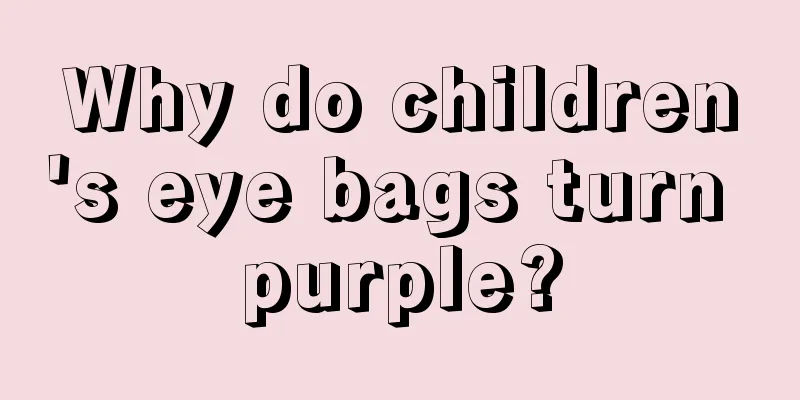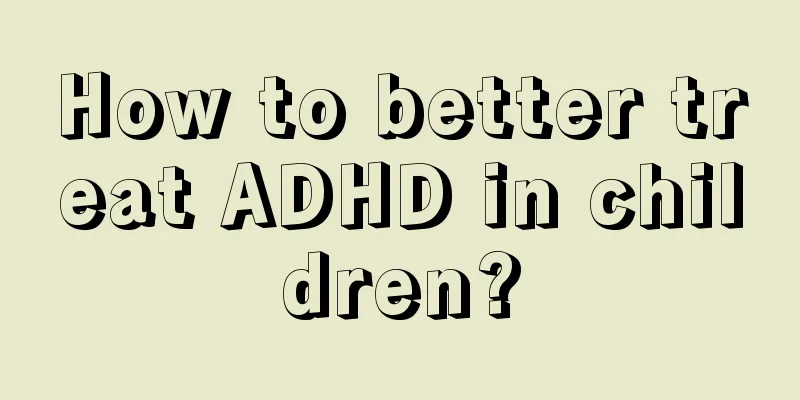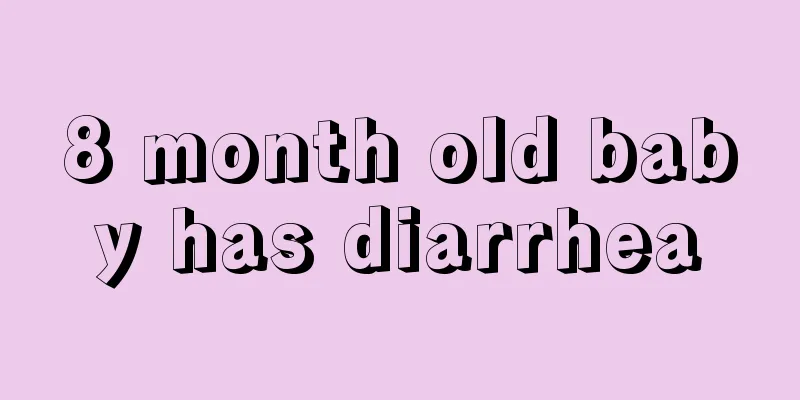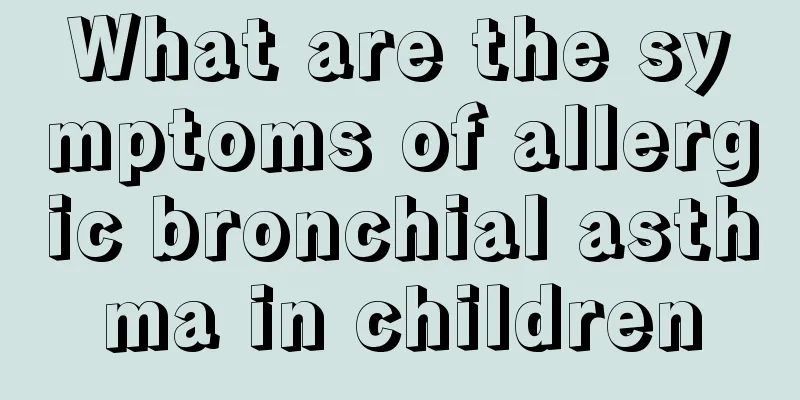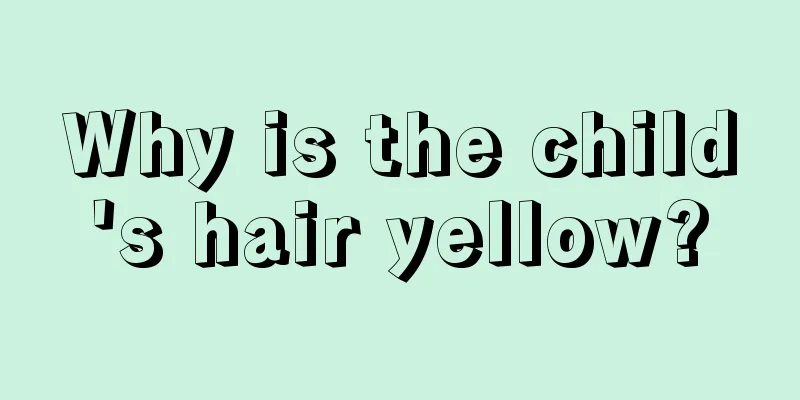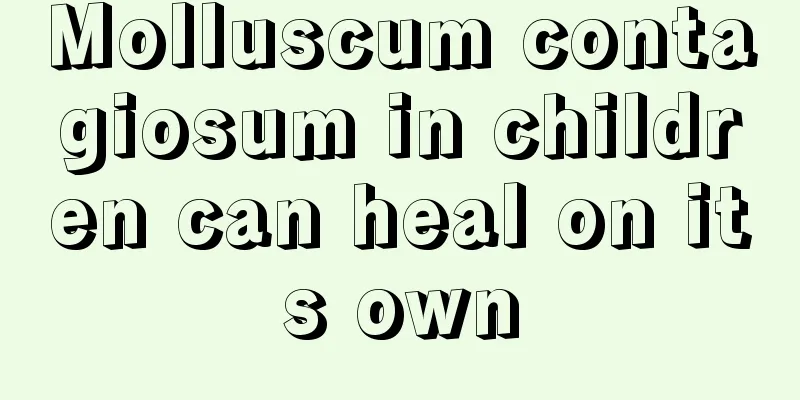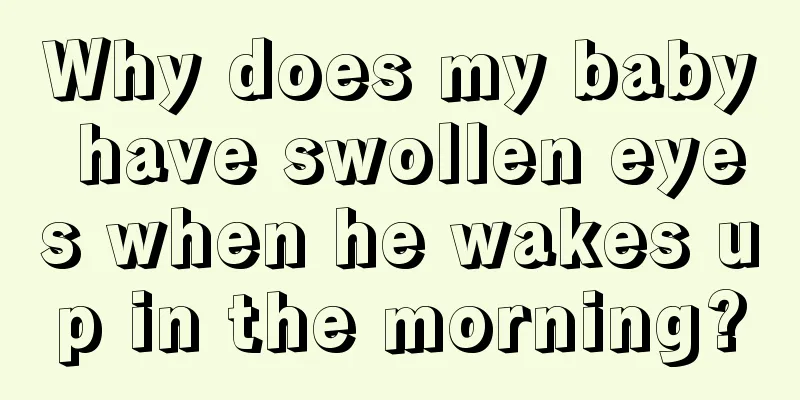What causes children to twitch while sleeping?
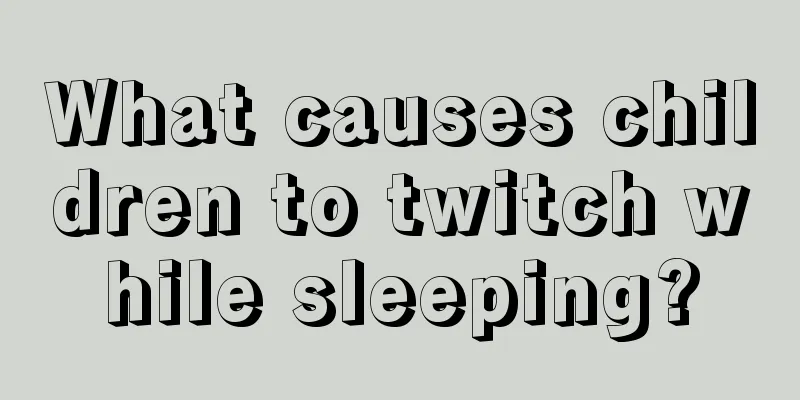
|
Children's body regulation ability is relatively poor, so they may experience muscle spasms, also known as convulsions, for many reasons. For example, when a child has a severe high fever, he or she will experience convulsions. In addition, some children will have inexplicable convulsions when they sleep. This problem must be taken seriously because there may be more serious factors behind it. The common causes are listed below. What causes children to twitch while sleeping? What is the reason why children's bodies twitch after sleeping? Regarding children's twitching while sleeping, parents need to pay attention to the following points. 1. Brain damage. For some children, when they just fall asleep, some of their brain cells are in a dormant state, while some other brain cells are still in an excited state. At this time, if there is a change in light or sound, it may cause the child's hands and feet to shake involuntarily. Some children also have irregular shaking of fingers, eyelids, and toes without light and sound stimulation. Generally, the shaking lasts for a very short time and disappears after entering deep sleep. Some children have suffered head injuries due to illness or external reasons, which causes the brain to be unable to control the body's muscles well, resulting in body disorders and the children cannot control it very well. If it is caused by brain damage, the key is to find the corresponding children's hospital for timely treatment. 2. Lack of calcium in the body. Children are in the growth stage, and if the required nutrition cannot keep up in time, it will cause developmental problems for the children. If the children cannot absorb calcium elements well, and the children's bodies lack calcium, they will also experience body twitching, accompanied by excessive sweating and occipital protrusions, among which occipital protrusions are more typical symptom. If the child's condition is caused by calcium deficiency, calcium supplementation is needed in time. If the child has problems with calcium absorption, further treatment is needed. 3. Tourette syndrome. Considering the child's symptoms, it could also be caused by tics. Childhood tics are motor or vocal muscle spasms that often occur in childhood, and are mainly manifested by involuntary, stereotyped movements, such as frequent blinking, making strange faces, shaking the head, shrugging, coughing sounds, clearing the throat, etc. If a child exhibits some of the above symptoms, parents should consider taking the child to a children's hospital for a checkup for tics. Tourette syndrome is most common in children aged 4-7 years old, and can still occur in children aged 12-16 years old. The incidence ratio is higher in boys than in girls, about 3:1-4:1. According to clinical observations, girls develop the disease earlier than boys, and the treatment is slower to be effective than boys. |
<<: What should I do if my baby's lower body is red and itchy?
>>: Why do children have convulsions?
Recommend
What to do if your child's scrotum is red and swollen
Children are prone to many diseases. When treatin...
What to do if your eight-month-old baby has a stuffy nose
It is normal for children to catch a cold. Someti...
Treatment of elevated transaminase in newborns
The transaminase value is an indicator of our bod...
What foods are better for students to supplement their brains?
People in their student years are the most worryi...
What is the treatment for precocious puberty in children?
Precocious puberty has become a very common probl...
The reasons why children have thinning hair cannot be ignored!
Many mothers watch their children grow up day by ...
How many times a day is normal for babies to poop
We all know that every one of us has to eliminate...
Causes of baby's skull protrusion
Babies grow up slowly from birth, and problems of...
What fruits should children eat when they have a fever?
Children's immunity is relatively poor, so th...
What are the dangers of children sleeping late?
Everyone should go to bed before 11 o'clock a...
Baby has a heavy nasal sound when sleeping
When many babies are sleeping, mothers will hear ...
What should I do if my baby has a hole in his big tooth?
Most babies usually like to eat sweets very much....
What foods are good for calcium supplementation in 10-year-old children?
Every parent hopes that their child can be health...
Is it normal for a baby to have a rumbling stomach and fart?
Generally speaking, babies sometimes have rumblin...
What should I do if my child has a fever of 40?
Fever is a very common phenomenon and also a comm...
